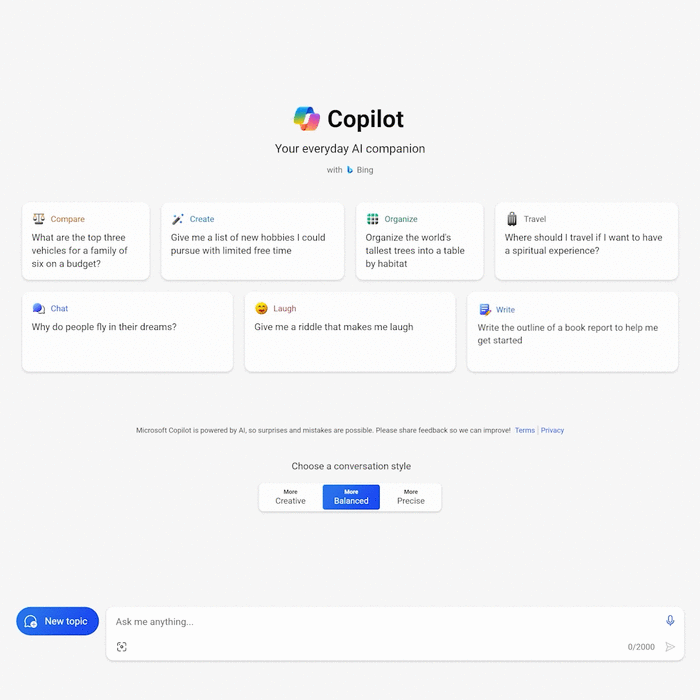Microsoft Copilot, Microsoft’s AI-powered chatbot, can now compose songs thanks to an integration with GenAI audio app Suno.
End users can enter prompts into Copilot like “Create a pop music about adventures with your family” and have Suno, by using a plug-in, convey their musical strategies to lifestyle. From a solitary sentence, Suno can deliver comprehensive tunes — which include lyrics, instrumentals and singing voices.
Copilot consumers can accessibility the Suno integration by launching Microsoft Edge, going to Copilot.Microsoft.com, logging in with their Microsoft account and enabling the Suno plug-in or clicking on the Suno logo that claims “Make music with Suno.”
“We believe that this partnership will open new horizons for creative imagination and entertaining, creating new music generation accessible to all people,” reads a post printed on the Microsoft Bing blog this morning. “This knowledge will start rolling out to buyers setting up today, ramping up in the coming weeks.”
Tech giants and startups alike are more and more investing in GenAI-pushed tunes generation tech. In November, Google AI lab DeepMind and YouTube partnered to launch Lyria, a GenAI product for tunes, and Desire Keep track of, a limited-accessibility software to develop AI tunes in YouTube Shorts. Meta has printed numerous of its experiments with AI tunes era. In other places, Steadiness AI and Riffusion have launched platforms and apps for creating tunes and consequences from prompts.

Impression Credits: Microsoft
But quite a few of the ethical and legal problems all around AI-synthesized songs have nevertheless to be ironed out.
AI algorithms “learn” from existing songs to develop identical effects, a truth with which not all artists — or GenAI consumers — are snug, especially in cases where by artists don’t consent to owning an AI algorithm teach on their music and did not acquire compensation for it. Stability AI’s very own GenAI audio direct quit right after stating that gen AI “exploits creators,” and the Grammys have banned completely AI-generated song from thought for awards.
A lot of GenAI providers argue that fair use excuses them from having to pay out artists whose performs are community — even if they are copyrighted. It is uncharted legal territory, even so.
For its portion, Suno does not expose the resource of its AI instruction details on its internet site — nor does it block users from entering prompts like “in the type of [artist],” contrary to some other GenAI songs applications. I was equipped to get the prompt “Uplifting songs in the model of Steely Dan” through without the need of any warning information.
Suno statements, even so, that it does endeavor to block specific prompts that its types never identify artists’ names and that it helps prevent consumers from uploading the lyrics to current music to generate handles.
As the utilization rights concerns get hashed out in the courts, handmade tracks that use GenAI to conjure acquainted seems that can be passed off as reliable — or at minimum close more than enough — have been heading viral. Audio labels have been speedy to flag them to streaming partners, citing intellectual property considerations — and they’ve normally been victorious. But GenAI tool creators have basically migrated in other places, underground.
Clarity on the legal status of gen AI audio may possibly get there before long — if not from court docket selections. A newly introduced Senate bill would give artists, which include musicians, recourse when their electronic likenesses, like their musical kinds, have been used with no their authorization.


